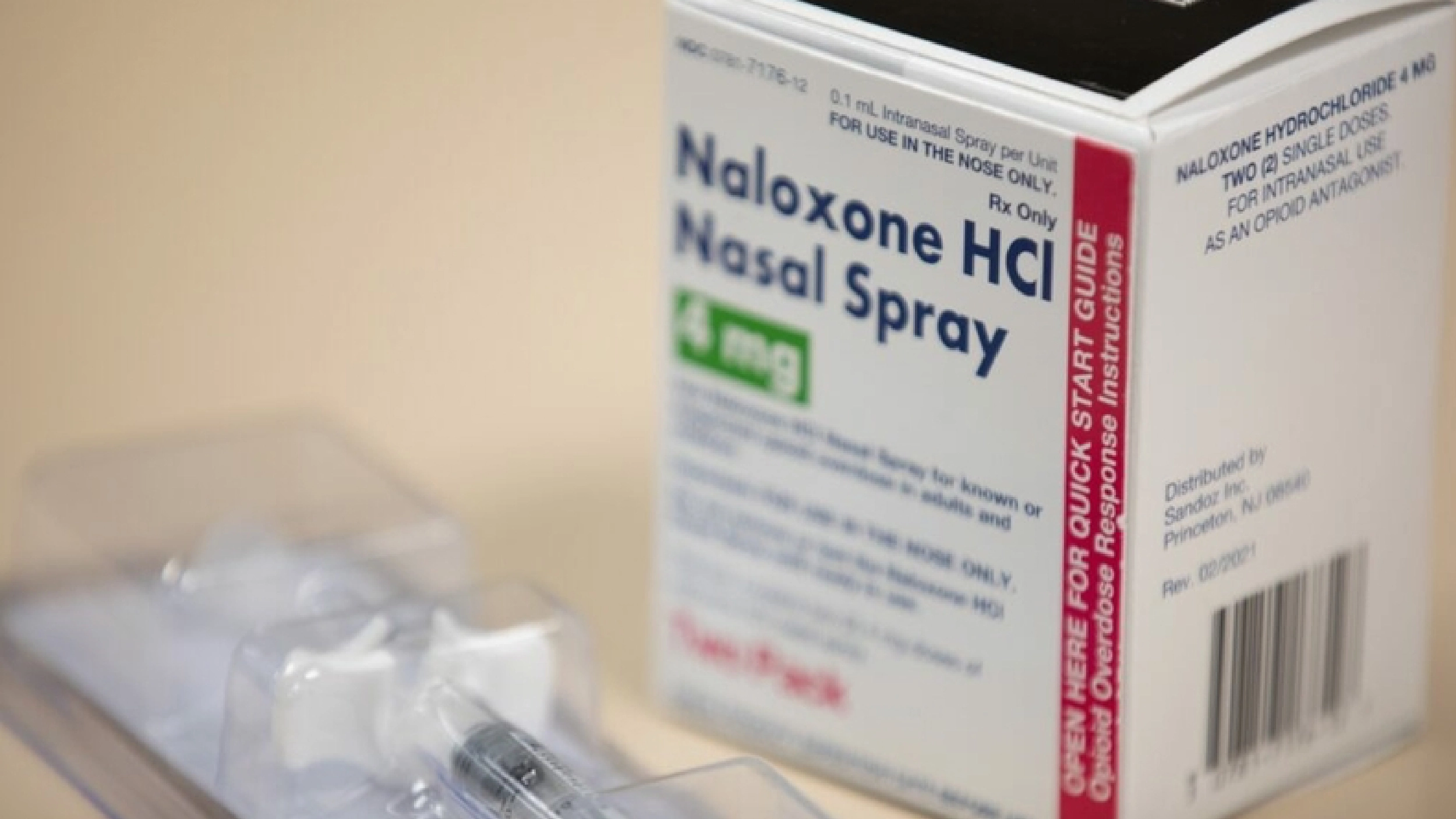
A Guide To Repairing Family Relationships
Discover expert tips for repairing family relationships and fostering healthy connections with The Recovery Team.

Methadone is a prescription medication that belongs to the class of drugs known as opioids. The United States Food and Drug Administration (FDA) has approved methadone to treat moderate to severe pain and opioid use disorders (OUDs).
Methadone is both safe and effective when used as prescribed. It helps people to recover from addiction and return to active and fulfilling lives.
For best results, patients should also participate in a comprehensive medication-assisted treatment (MAT) program that includes social support and counseling.
Methadone can be very effective in treating chronic pain and withdrawal symptoms. However, in recent years, the safety of methadone has come into question.
While methadone has been a solution to treat opioid addiction, it is also a highly addictive substance in and of itself. Therefore, people who use methadone need to understand the adverse effects it can have on their overall health.
Although methadone is most often used to treat heroin addiction, methadone itself has a high potential for addiction. Long-term use of methadone can result in drug dependence and tolerance.
Recovering from methadone addiction is possible. Treatment in a safe and comfortable environment can minimize discomfort, help avoid relapse, and offer ongoing recovery support.
For those who are prepared to overcome their methadone addiction, there are various effective treatment options available at The Recovery Team.
The Recovery Team offers residential treatment, outpatient treatment, intensive outpatient program (IOP), partial hospitalization (PHP), dual diagnosis, and other therapies.
Our health professionals can help make the recovery process as effective and painless as possible. With proper treatment, you can regain control of your life.
If you are addicted to methadone or any other prescription drug, get immediate help at The Recovery Team. Contact us today at (800) 817-1247.
Because methadone is a prescription drug, people may be more likely to misuse it because they believe it is safe, especially when compared to opioid drugs, such as fentanyl or heroin.
Someone with a methadone prescription may not know their usage has developed into addiction until it is too late.
Some common side effects associated with methadone misuse that can act as possible symptoms of methadone addiction include the following:
Methadone addiction symptoms vary depending on how often a person uses the medication, how high a dosage they take, their age, weight, genetics, and other individual factors.
If you display the following behaviors or patterns, it may be time to seek professional treatment for your addiction:
If you are experiencing any of the issues above, contact a doctor or substance abuse expert as soon as possible to avoid any serious health complications.
If someone you care about is suffering from substance use disorder, you may feel scared, powerless, and confused. You may be desperate for them to get treatment.
While you cannot force someone to overcome their addiction, your love, support, and patience can help them recover.
Here is how you can help a loved one who needs help:
Some people believe that those addicted to prescription drugs, such as methadone, lack willpower and could quit if they wanted to.
However, methadone addiction is a complex brain disease that, according to most researchers, is caused by a combination of factors. The following are the most commonly recognized causes of methadone abuse:
Genetics plays a big part in every aspect of a person’s life, including physical appearance, emotional state, and overall health. Family history and genetics also play a role in prescription drug addiction, such as methadone.
According to the National Institute on Drug Abuse (NIDA), family studies reveal that a person’s genetic makeup determines up to half of their risk of being addicted to drugs.
Therefore, if you have a family member with methadone addiction, you are more likely to develop an addiction too. A family history of substance use does not mean that a person will definitely develop an addiction; instead, it only increases the likelihood.
Methadone has a high potential to be abused. While it does not have the same addictive potential as morphine or heroin, it does have a few sedative properties that can become addictive when taken frequently and in high doses.
People who abuse methadone for its intoxicating effects or medical reasons may develop an addiction after long-term usage. People with a history of opiate addiction are at a higher risk of methadone addiction.
No single factor can indicate whether or not a person would become addicted to drugs. A combination of factors influences the risk for addiction. The more risk factors a person has, the more likely it is that prescription drug use will lead to addiction.
These risk factors for prescription drug addiction are not absolute determinants for everyone, but they should lead to lifestyle changes when observed. These factors may include the following:
Addiction to prescription medications has been rising steadily in America. One major reason for that is the availability of drugs.
Easy access to prescription drugs, such as methadone, can lead to addiction in several ways, namely by increasing the chances of excessive use and abuse.
People who use methadone as a replacement for other illicit drugs are at high risk of developing an addiction problem.
Most of the time, people get methadone because a doctor prescribes them or someone in their house takes medicine.
Addiction and social pressure are linked. Social pressure causes people to engage in risky behaviors, such as abusing drugs.
Social peer pressure can be obvious, such as offering a person to misuse drug or mocking someone who refuses to use it.
On the other hand, social pressure can also be more subtle and indirect. For example, suppose popular students misuse methadone or any other prescription medication. In that case, other students may believe they must do the same to be accepted by their peers.
As a result, if someone continues to socialize with people who encourage prescription drug usage, they may continue using it and develop an addiction.
A person’s environment is a primary risk factor for prescription drug abuse.
Teenagers who lack support from family or live in an abusive environment are more prone to use drugs to cope with their feelings. Teens begin using prescription medications because they have easier access than illegal drugs.
People isolate themselves due to unpleasant family situations or a lack of bond with family members. This isolation may raise the chances of experimenting with drugs and developing an addiction.
Methadone is a prescription medication that is very effective in treating opioid use disorder (OUD). Due to its high potential for addiction, it is recommended to take it only with a doctor’s prescription.
However, when someone abuses methadone, they run a high risk of developing an addiction. Methadone addiction can result in various effects on safety, employment, relationships, and health.
Here are the most common effects of methadone addiction:
Methadone abuse can lead to slowed reaction time, dizziness, and drowsiness, which can lead to poor decisions and risky behaviors or situations, including:
Methadone, like any other drug, can take a serious toll on relationships.
Following is the breakdown of reasons that stem from methadone abuse and can affect a person’s relationship with family members, friends, and co-workers.
Methadone addiction affects employment in several ways. Here are the most common effects of methadone abuse on employment:
Addiction is a complex brain disease that can impact a person’s overall physical and mental health. Here are the effects of methadone addiction on health:
There are many effective treatment options available for methadone addiction. These options may include the following:
Methadone is often used to help people addicted to heroin or other opioids by easing withdrawal symptoms. People who misuse methadone may become dependent on this medicine, which can lead to addiction.
If you are addicted to methadone, you should never attempt to quit alone. A medically supervised detox program is a necessary first step toward breaking free from the drug’s grasp.
Inpatient methadone rehab includes structured and planned days, and patients must follow the program’s guidelines and rules. Inpatient treatment might last 30, 60, or 90 days.
The intensive nature of inpatient rehab can result in positive results. However, inpatient rehab requires individuals to leave their homes, jobs, and families while in treatment.
Outpatient rehab offers more flexible options than inpatient rehab, allowing patients to continue with their work, family, or other responsibilities as needed.
When a person is not severely addicted to methadone and may not need intensive care, outpatient rehab programs may be the best option.
There are several levels of care within outpatient rehab, which can fit with a person’s varying levels of structure and schedule.
A PHP is a step down from inpatient drug rehab and usually offers highly structured care for 4-6 hours per day, 3-5 days per week.
PHP programs are ideal for those who still require medical supervision during the day but can return home at night.
Families and caregivers must support the treatment plan and create a stable and supportive home environment.
IOPs usually provide sessions three days a week for three hours at a time. An IOP may begin with more sessions more often and then gradually taper off as an individual proceeds through rehab.
These programs are designed for those who require the intensity and structure of inpatient rehab with the flexibility of outpatient rehab.
For an IOP to be most effective, the support system must be solid, and the home environment must be stable and drug-free.
Overcoming addiction to methadone also includes a wide variety of therapies. Some of these may include the following:

Discover expert tips for repairing family relationships and fostering healthy connections with The Recovery Team.

Discover practical tips on how to set boundaries with people in this expert guide from The Recovery Team.

Naloxone saves lives. The Recovery Team shares how to reverse an opioid overdose with this drug.
Yes, methadone can be habit-forming. It is important to take methadone directly as prescribed by a doctor. Do not take medicine in a large dose, take it differently, or take it more often than prescribed.
Long-term and regular use of methadone can lead to serious side effects. Therefore, it is always a good idea to discuss this with your healthcare provider before taking methadone.
Methadone is a medication used to treat chronic pain and opioid use disorder. However, like any other drug, methadone also has potential side effects.
People who take methadone even for a short time can experience the following side effects:
When a person uses methadone for a long time, the medicine causes changes in the brain. It can cause damage to vital body organs, such as the liver.
As with most medical treatments, there is no set time frame for how long a person stays on methadone. Rather, the length of any treatment, including a methadone program, depends on a person’s individual needs.
According to the National Institute on Drug Abuse (NIDA), the length of methadone treatment should last at least 12 months. However, if you’re only using methadone to detox, the duration will be much shorter.